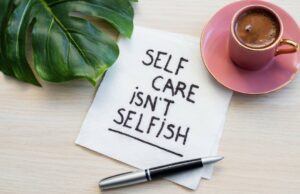5 Ways to Prevent Professional Healthcare Burnout
Date: September 11, 2023
Since time began, personnel shortages, limited funds, and periods of heightened stress have existed. No one is exempt. However, while you can’t make stress entirely disappear, you can do a lot to mitigate or “soften” the distress at hand. First, ascertain what’s causing your burnout.
Assess the Cause of Burnout
A) HOME
Is it your home life? A toxic personal relationship can do much to zap your energy. Further, living with an addict or unsafe person can compromise your well-being. Call a national hotline or seek a professional advisor if your stress is due to a domestic dysfunction or compromising situation. Foremost and at all times, keep your safety in mind.
B) WORKPLACE
Is your burnout derived from your employment? Serious concerns may necessitate action, such as responsibility shifts, scheduling changes, or a career pivot. For instance, if there’s a toxic co-worker, does HR need to speak with them regarding their tone or actions? If your stress falls into this category, courage may be required to work through your company’s grievance processes.
C) PROFESSIONAL WEAR AND TEAR
Other times, job-related stress falls under the standard “wear and tear” of life. However, even so-called “normal” stressors can affect your well-being and the quality of care you provide to others. Common contributors to professional burnout include:
- The weight of constant patient care;
- Expectations to stay for longer shifts or work on days off;
- The gravity of the work and the rise to higher production and accuracy.
If your stress falls under “normal working and living,” the good news is there are many things you can do to manage and move through it. Below are some ideas to address burnout
.
How to Manage Professional Burnout
Effective strategies go a long way to ward off burnout. Generally, these include:
- An excellent work-life balance;
- Proper self-care practices;
- Strong support systems;
- Effective stress-management practices;
- Professional support.
1) ESTABLISH A GOOD WORK-LIFE BALANCE
Sometimes, fatigue signals you may need a break, a long cry—or even a good laugh. According to Novant’s Health Employee Assistance Program, nurses should regularly schedule time for rest and play. The more balanced your life, the better-equipped you’ll be to navigate the demands.
If a bike tire has a bulge, can you ride it smoothly? No. Similarly, the proverb, “All work and no play makes Jack a dull boy,” strengthens the notion one ought to engage in activities that bring joy and relaxation regularly.
- By setting clear boundaries between the gray line of work and life, professionals can avoid the constant exhaustion associated with wearing out. Striking such a balance (a condition where different elements are equal or in the correct proportions),1 allows you to recharge and bring your best self to your patients.
- Reprioritizing or reassessing methods and tools can go a long way. So does saying “no” to yet another shift. While the pushback may temporarily fly as awkward, it can go miles to ward off core stressors. Likewise, time management and listening to your body are just a few of the “tricks” needed en route to your new, more balanced self.
- Remember, a bit of balance and a ‘sprig’ of joy each day enables health workers to practice their professions longer and with a lot more pleasure.
2) EMBRACE PROPER SELF-CARE PRACTICES
Similar to balance, self-care is essential to maintaining physical and mental well-being. You carry a pretty impressive “computer” between your ears and over your shoulders, called a mind. Self-care keeps your mind at its best. According to the National Institute of Mental Health, “When it comes to your mental health, self-care can help you manage stress, lower your risk of illness, and increase your energy. Even small acts of self-care in your daily life can have a big impact.”
When contemplating self-care, people generally imagine a spa or trip; they neglect it because of the time or money required. However, many regiments are free and take just a moment. Take a deep breath. Fully exhale. How did that feel? What did it cost you?
Relaxation can look different for everyone. For one person, R&R may be a rigorous racquetball game or pounding out an aerobics routine. For another, it may be mindfulness, oil painting, or sleeping eight (8) hours. For everyone, it’s doing things that restore. So whether it’s yoga, meditation, or cultivating a garden, such habits equip you to handle the pressure better.
Simple, free R&R activities may include:
- Reading a short joke and retelling it;
- Having a cup of tea from an attractive cup;
- Smelling a flower;
- Mindful meditation;
- Recalling a happy vacation or moment;
- Petting the family dog;
- Walking through the grass barefoot;
- Taking a hot bath.
3) BUILD STRONG SUPPORT SYSTEMS
Akin to good self-care practices is having a supportive network. Sharing burdens reduces the risk of burnout. Imagine building a house without nails. While you might have sturdy timber, the house will fall if nothing connects the pieces. Likewise, your support system can help you stand amid the stress.
Moreover, research supports that a support system positively impacts mental health. On a scale of 1–10, with ten (10) being “high stress” and one (1) being “little to no stress,” people with emotional support scored only five. In contrast, people without emotional support scored 6.3,3 handling stress better than their counterparts.
Years ago, families formed natural support systems. Many relatives lived near each other (or even in the same home), making up extended families. Communities naturally connected over the fence or from front porches a hundred years ago. By contrast, today’s automation, attitudes toward personal freedom, and limitless mobility can cause us to go hours–even days without human interaction. Poor social support has been linked to “depression and loneliness and has been shown to alter brain function and increase the risk of alcohol use, cardiovascular disease, depression, and suicide.”4
Students entering the healthcare profession do well to build strong connections with classmates and faculty. They may also establish relationships with experienced professionals.
Moreover, support systems can be found in the most surprising places. I.e., support might be in earshot–that listening ear in another mom at your child’s daycare. It may be just the right “shoulder” to cry on at church or a refreshing conversation during a small break. So, too, support groups, civic clubs, and gyms can be social places. If you have time, volunteering generally could provide community, too.
4) PRACTICE EFFECTIVE STRESS MANAGEMENT
An aggressive stress management plan is similar to a robust support system. (Read stress managed.) Healthcare professionals should strongly consider implementing best practice stress reduction techniques and strategies. Some popular ones are as follows:
- Decide What’s Manageable—Novant’s Health Employee Assistance Program suggests you consider what’s negotiable. While you can’t add hours to the day, you can better utilize those given hours. You may not be able to relinquish adult responsibilities like paying the mortgage. But, you might contemplate a downsize, making the mortgage more manageable.
- Form New Ways of Doing Things—Another way to combat burnout is to form new habits and other ways of doing things. For instance, would a 20-minute walk in the sunshine be more productive long-term than cramming in another five tasks? Changing inactivity patterns can improve the way one goes about their to-do list, providing small bursts of energy.
- Try Common Approaches to Alleviate Tension—Exercise and journaling. Can you take a one-minute time out? Does touching a soft or smooth object bring you temporary comfort? What about simply lowering your voice and feeling your mind pause? Just the action of slowing your mind and body can help you manage a situation. Regulated breathing is another potentially effective method to alleviate some stress.
- Decide What Stressors to Give Actionable Responses—Sometimes, during a long shift or while helping a problem patient, there’s no time to journal one’s way through. You can decide what stressors you will allow into your actionable responses at those times. Even if items come at you, you can disallow your thoughts from going into your mind and, ultimately, your bandwidth. Moreover, there are specific pathways to achieve serenity despite your circumstances.
5) SEEK PROFESSIONAL SUPPORT
Related to effective stress management is professional support. When healthcare professionals recognize symptoms of burnout or significant distress, it’s essential to listen. Sometimes, stopping to smell the roses just doesn’t cut it. At those times, one should not hesitate to consult a healthcare provider, therapist, or other mental health professional.
Recognizing the need for assistance and promptly seeking it is courageous. The article “Four Signs It May Be Time to Seek Professional Mental Health Help” cautions on when to seek help. “If you feel paralyzed by stress, can’t control your emotions, depression interferes with your ability to function, or you notice these or similar symptoms in a loved one, it may be time to seek professional care.”5 The article then provides four prongs to knowing you might need professional help.
These include:
- Stress is too much to bear;
- Anxiety becomes debilitating;
- Depression is your new normal;
- If one’s mania causes extreme emotions.5
Said professionals can provide guidance, support, and therapeutic interventions to address psychological and emotional challenges. Therefore, seeking professional help is crucial.
Likewise, the Cleveland Clinic identifies a pivotal time for getting help: “If you feel overwhelmed and can’t manage your emotions and stresses on your own, seek the help of a professional. Don’t stay `frozen’ or feel like you’re holding your breath, waiting for your feelings to end. If you are stuck in a rut and can’t get yourself out, seek professional help.”6 Besides medical doctors, professional help is available through counseling and support groups.
Conclusion
Preventing burnout among healthcare professionals is paramount for their well-being and the delivery of high-quality care. Educated in stress management and self-nurture, with action, healthcare professionals can continue to thrive in their careers. Ultimately, this will benefit both themselves and the patients they serve. “Effective stress management helps you break the hold stress has on your life so that you can be happier, healthier, and more productive,” states Lawrence Robinson and Melinda Smith in an article in HelpgGuide.org.”
The ultimate goal is a balanced life, with time for work, relationships, relaxation, fun, and the resilience to hold up under pressure and meet challenges head-on.”7 Pursuing healthcare? Check out our allied healthcare, nursing, and imaging programs here.~
*Read more on self-care and mental health. Also, watch mindfulness visualization videos from the National Institute of Mental Health here.
Citations
1 Oxford Dictionary. “Oxford Languages.” Oxford Languages, Oxford University Press, 2023. (Accessed August 28, 2023.)
2 “Caring for Your Mental Health.” National Institute of Mental Health (NIMH), Dec. 2022. (Accessed August 28, 2023.)
3 Mental Health First Aid. “The Importance of Having a Support System.” Mental Health First Aid, National Council for Mental Wellbeing. August 6, 2020. (Accessed August 28, 2023.)
4 Cherry, Kendra. “How Social Support Contributes to Psychological Health.” Verywell Mind, Dotdash Media, Inc., April 14, 2020. (Accessed August 28, 2023.)
5^a, b Mannarino, Meghan. “4 Signs It May Be Time to Seek Professional Mental Health Help.” Forbes Health, Forbes Media LLC. May 25, 2022. (Accessed August 28, 2023.)
6 Cleveland Clinic. “Emotional Stress: Warning Signs, Management, When to Get Help.” Cleveland Clinic. December 29, 2020. (Accessed August 28, 2023.)
7 Robinson, Lawrence, and Melinda Smith. “Stress Management–HelpGuide.org.” (Accessed August 28, 2023.)












